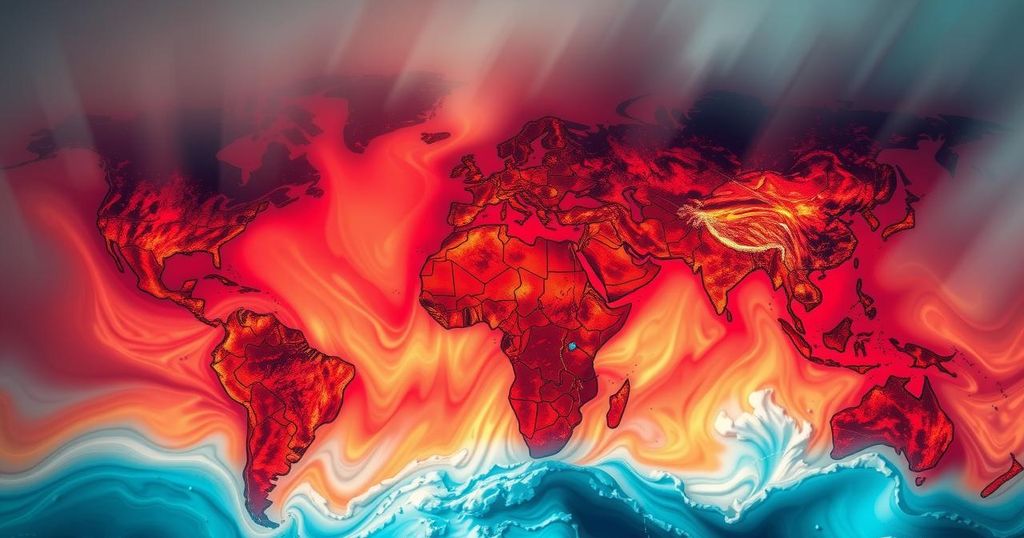The 2024 analysis reveals that human-caused climate change resulted in an increased average of 41 dangerous heat days, adversely affecting human health and the economy. Reported income losses due to labor capacity reductions in India peaked at $141 billion, emphasizing the economic ramifications of extreme heat. The findings advocate for a rapid shift from fossil fuels to prevent exacerbating climate-related disasters, as climate change significantly intensified numerous extreme weather events this year.
In 2024, climate change attributed to an alarming rise of 41 additional days characterized by dangerous heat, severely impacting public health and economic stability. This analysis underscores the correlation between heat exposure and diminished workforce productivity, with a notable report indicating that India experienced potential income losses totaling $141 billion due to decreased labor capacity amid extreme heat conditions in 2023. The findings from World Weather Attribution and Climate Central emphasize the urgent need for a markedly accelerated transition away from fossil fuels to mitigate the relentless threats of extreme weather phenomena such as heatwaves, droughts, and floods. The report indicates that human-induced warming has led to these additional dangerously hot days, representing the extreme temperatures identified over a reference period from 1991 to 2020. Furthermore, climate change significantly intensified 26 of the analyzed weather events that resulted in over 3,700 fatalities and substantial displacements across the globe. Dr. Friederike Otto, a distinguished climate scientist, highlighted the catastrophic repercussions of extreme weather, citing numerous instances including fatalities from floods in Spain, hurricanes in the United States, and severe drought in the Amazon region. As 2024 continues to unfold, it is projected to be the hottest year recorded, following a 13-month streak of unprecedented high temperatures, culminating in the hottest day documented on July 22. The reported analysis categorizes 219 significant weather events, asserting that climate change has proved to exert a more substantial influence than the El Niño phenomenon, particularly in cases like the exceptional drought afflicting the Amazon.
The analysis presented in the report outlines the urgent implications of human-caused climate change on global weather patterns and public health. As extreme weather becomes increasingly frequent and severe, the ability of economies, particularly those reliant on outdoor labor, is compromised. Historical data establishes a direct link between rising temperatures and productivity losses, necessitating an urgent discussion on energy transition policies. With extreme weather events becoming a leading cause of mortality and displacement, the findings serve as a clarion call for immediate and decisive action to address climate change.
In conclusion, the report from World Weather Attribution and Climate Central paints a concerning picture of climate change’s impact in 2024, with an unprecedented increase in dangerous heat days contributing to significant health and economic challenges. The evidence reinforces the necessity for a swift transition from fossil fuels to safeguard human health and stabilize economies against the backdrop of an increasingly unpredictable climate. This year’s extreme weather events exemplify the pressing consequences of climate change, reinforcing the urgency for global cooperation and policy reform.
Original Source: www.businesstoday.in






